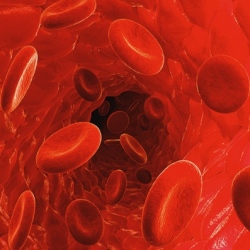
Researchers have infused a person’s blood with gene editing tools, aiming to treat his severe inherited disease; Hunter syndrome. When the enzyme is defective or missing, the sugars build up and can cause developmental delays, organ problems, brain damage, and early death.
Brian Madeux, the first patient in what will be a small clinical trial has a mild form of the disease, but nevertheless has had more than two dozen operations as a result.
Patients may have frequent colds and ear infections, distorted facial features, hearing loss, heart problems, breathing trouble, skin and eye problems, bone and joint flaws, bowel issues and brain and thinking problems.
Weekly IV doses of the missing enzyme can ease some symptoms, but cost $100,000 to $400,000 a year and don’t prevent brain damage.
Gene editing won’t fix damage he’s already suffered, but he hopes it will stop the need for weekly enzyme treatments.
Initial studies will involve up to 30 adults to test safety, but the ultimate goal is to treat children very young, before much damage occurs.
Sangamo uses older gene therapy called Zinc Fingers.
Sangamo Therapeutics, a biotech company based in Richmond, California inserts a replacement copy of the gene, using gene editing to snip the DNA helix of liver cells in a specific place near the promotor, or on-off switch, for the gene for a protein called albumin.
The cells fix the repair by inserting the DNA for the new gene, supplied by the researchers along with the gene editor’s DNA scissors, and the gene’s activity is then controlled by the powerful albumin promotor. The idea is to turn these modified liver cells into a factory for making the enzyme missing in Hunter syndrome.
